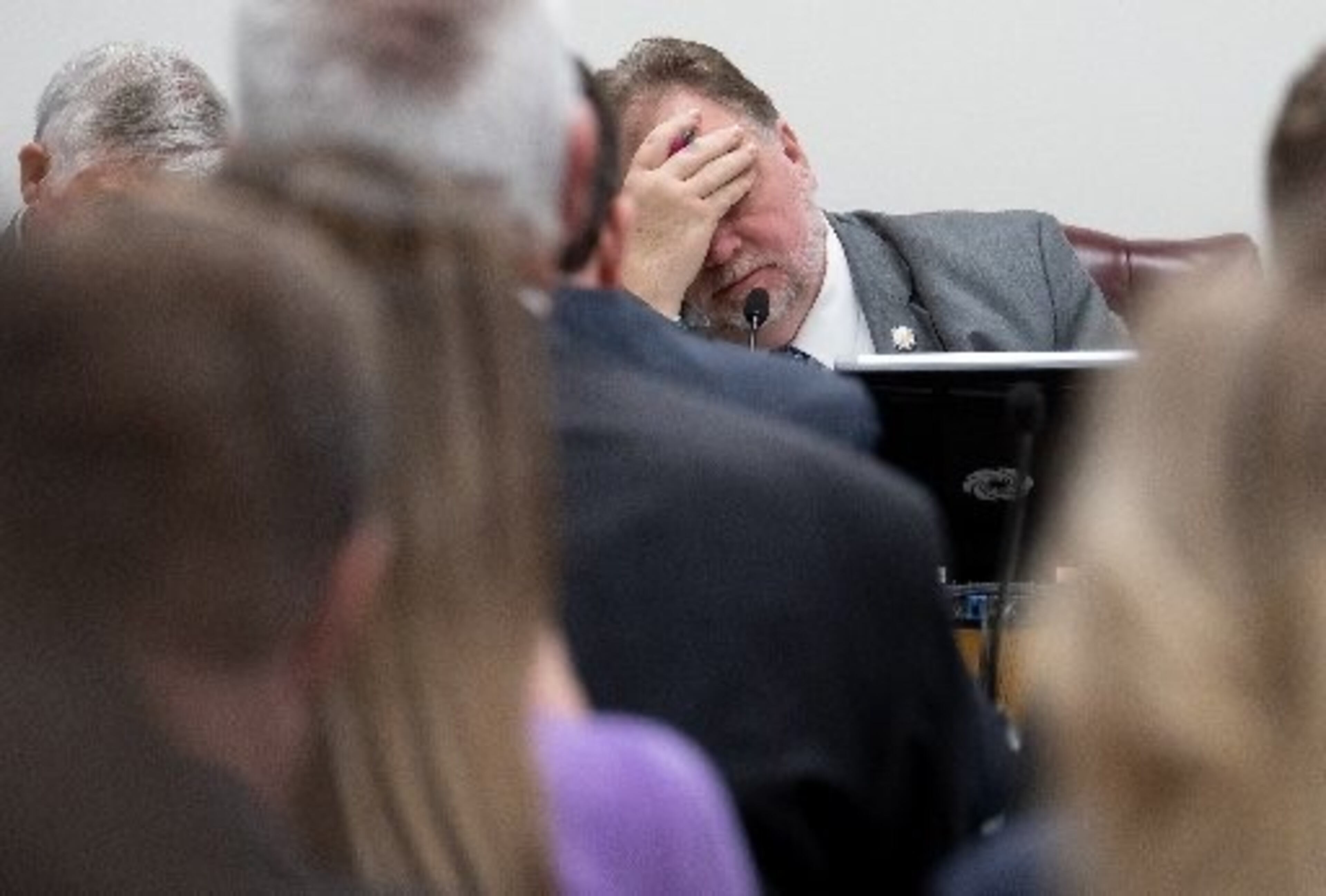Abrams and Perdue fight GOP proposal to rewrite fundraising rules

Democrat Stacey Abrams and Republican David Perdue have forged an uncommon alliance against a measure championed by Gov. Brian Kemp’s GOP allies to rewrite campaign finance rules months before the election.
The rivals for governor have rallied donors and supporters against a proposal that would ban challengers from raising campaign money during the three months that state legislators are in session.
Perdue, a former U.S. senator running against Kemp in the GOP primary, called the proposal a brazen “incumbent protection act” designed to help the governor and other vulnerable Republicans. And Abrams’ campaign held a virtual press conference Monday to sharpen its opposition to the measure.
“If there is a campaign finance law change that protects incumbency and is clearly unconstitutional, we are ready to fight it,” Abrams campaign manager Lauren Groh-Wargo said, while another deputy urged donors to give “very quickly” in case the changes take effect soon.
The proposal, by powerful state Sen. Jeff Mullis, was introduced shortly after a federal judge placed restrictions on a special fundraising committee the Republican majority in the General Assembly approved last year that allowed the governor to raise unlimited campaign cash during a session.
U.S. District Judge Mark Cohen ruled last week that Kemp couldn’t use the leadership committee money against Perdue in the primary but indicated that if he wins the nomination, he could use the money this summer and fall for the general election.
Supporters say Mullis’ rewrite of House Bill 333 would level the playing field for lawmakers and statewide incumbents banned from raising money during the session, which this year lasts from January to early April, while their opponents are free to collection contributions.
“This brings parity and makes fairness for all,” Mullis, who chairs the agenda-setting Senate Rules Committee, said as he introduced the measure last week.

Kemp has been receptive to the legislation. His aides recently met with state Senate leaders to discuss the proposal, according to several GOP senators, and his campaign issued a statement accusing Abrams and Perdue of “joining forces to maintain the blatantly unfair status quo.”
“The surprising part is that they are being so open and honest about it,” added Kemp spokesman Cody Hall.
The changes would help Kemp counter both of his top rivals for governor. It would slow Abrams’ torrid fundraising pace while also potentially depriving Perdue, whom he faces in a May primary, of several key weeks of raising cash.
Abrams amassed $9.2 million over two months — about $2 million more than Kemp collected in a seven-month span. Perdue lagged behind them both, raising just $1.1 million between early December and the end of January.
Challengers typically raise far less than state officials and lawmakers, despite the current prohibition against incumbents raising money during the session. Kemp has raised roughly 18 times more than Perdue. Many legislators have big fundraisers with lobbyists and special interests each year in the days leading up to the session.
‘Politics at its worst’
Several drafts of the legislation propose more sweeping changes.
One version includes a provision that would ban anyone with “outstanding taxes” from qualifying for office, which would have prohibited Abrams from running in 2018. She owed roughly $55,000 in back taxes to the Internal Revenue Service, which she repaid in 2019.
Another potential provision would block political action committees aligned with candidates from raising cash during the session, which could theoretically limit efforts from groups such as Fair Fight Action, the organization Abrams founded after her 2018 defeat.
“We are looking and keeping on top of all of these campaign finance provisions,” Groh-Wargo said, adding that “this is clearly a naked election-year ploy.”
While Abrams and Perdue have been among the loudest critics of the measure, it would also reshape down-ticket contests for legislative seats and other statewide offices, including the closely watched contests for secretary of state and lieutenant governor.
And critics raised concerns that Kemp could call a special legislative session in the fall, effectively freezing fundraising up and down the ballot if it gives the GOP an edge in the November election.
Perdue has unleashed blistering attacks about the proposed overhaul at recent campaign stops, while his aides have called it a “brazen and politically motivated” assault.
“This attempt by incumbents to shut down their challengers’ ability to raise money is politics at its worst,” Perdue spokeswoman Jenni Sweat said.

